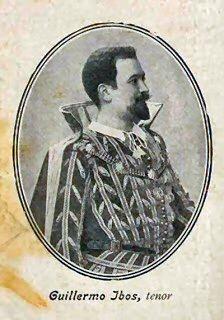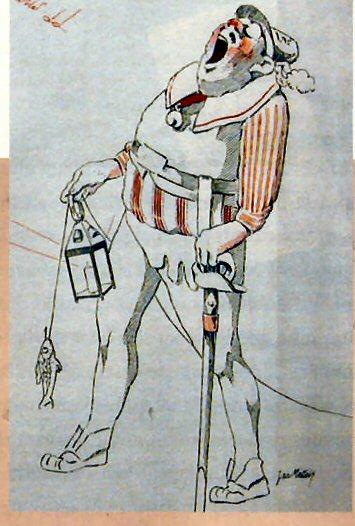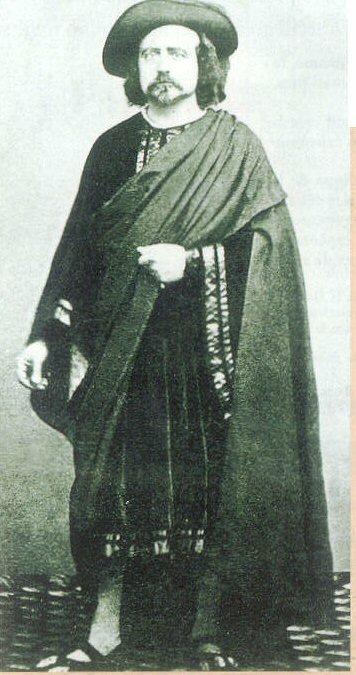Guillaume Ibos
Ibos grew up near Toulouse. During his childhood until he entered high school, he only spoke the dialect of Toulouse. (Actually not a dialect, but a completely distinct language: Occitan.) Toulouse, 1882/83
Burkar under the name Sobi, with Merli
Paris, Théâtre du Châtelet
Sigurd (excerpts) on 17 February 1884 (Concerts Colonne at the Châtelet) with Faure, Renaud, Claverie,
Fournets
Paris, Opéra
1885La favorite on 21 September with Mme Renée Richard, Gresse, Melchissédec Rigoletto on 20 November with Mme Lureau-Escalaïs, Lassalle?, Boudouresque? 1887 Don Giovanni on 5 November with Mme Dufranne, Delmas, Lassalle, Sentein, Bataille, Mme Adini, Mme Sarolta 1888 La dame de Monsoreau (by Gaston Salvayre) as Duc d'Anjou on 30 January with Jean de Reszke, Delmas, Muratet, Ballard, Berardi, Dubulle, Balleroy, Bataille, Malvault, Boutins, Warmbrodt, Sapin, MartapouraTégui, Trépaux, Lambert, Voulet, Mme Bossmann, Mme Sarolta, Mme Maret, Conti Henry VIII (by Saint-Saëns) on 18 April with Lassalle, Bataille, Plançon, Sapin, Balleroy, Mme Dufranne, Mme Richard 1892 L'Africaine on 20 January with Mme Bréval, Berardi, Mme Bosman, Plançon, Tequi, Ballard, Bataille, Doualhiers Les huguenots on 17 February with Mme Dufranne, Mme Lowentz, Marcelle Dartoy, Renaud, Gresse, Delmas La favorite on 21? February 1901 Roméo et Juliette on 12 July with Delmas, Bartet, Riddez, Laffitte, Nivette, Douaillier, Gallois, Gonguet, Dénoyé, Mme Ackté, Mme Agussol, Mme Beauvais
Russia
1889, Saint Petersburg, Renaissance: Carmen on 7 January1893, according to Ibos 1910/11, according to Levik's book Ibos was an outstanding tenor. He was over sixty (not true as he was not yet fifty) and his face was lined, but his voice was so vigorous and young that the eyes and the ears received a different impression. With superb control, he impressed as a vocalist.1914, according to Ibos
Brussels, La Monnaie, 1889
Esclarmonde on 27 November with Emma De Nuovina, Émilie Durand-Ulbach, Paul Isouard, Max Bouvet, Challet,
Sentein, Joseph Dupont (total 21)
Madrid
Teatro Real1895/96 Lohengrin on 28 December, 26/28 January with Emilia Corsi (28 December)/Teresa Arkel, Emma Leonardi, Achille Moro/Massimo Scaramella, Francisco Uetam, Cleofonte Campanini L'africaine (in Italian) on 15 March with Eva Tetrazzini, Anita Occhiolini, Massimo Scaramella, Francesco Navarrini, Cleofonte Campanini 1899 Lohengrin on 11/15/19/23 February 1899 with Avelina Carrera, Conchita Dahlander, Antonio Magini-Coletti, Miguel Riera, Juan Goula 1901/02 Lohengrin on 30 December, 5 January, 4/6 March with Teresa Arkel, Conchita Dahlander, Ramón Blanchart, Miguel Riera, Giuseppe Barone 1908 Lohengrin on 8 January with Beatriz Ortega Villar, Ladislava Hotkowska, Henri Berriel, Francesco Navarrini, Ricardo Villa Teatro del Príncipe 1897 La Gioconda in April with Pia Rolutti, Ortisi, Ramón Blanchart, Luigi Rossato, Jose Hernández
Lisboa, Teatro São Carlos, 1899
Lohengrin on 13 January with Maria Stuarda Savelli, Livia Berlendi, Mario Ancona, Giuseppe De Grazia, Cleofonte
CampaniniL'africaine (in Italian) on 22/25 January, 2 February with Elena Bianchini-Cappelli, Maria Martelli, Mario Ancona, Giuseppe De Grazia, Giuseppe Barone
Nice
Grand-Théâtre1890/91 Carmen on 2?/4/6/25 December, 22? February with Mme Tarquini d'Or, Mme Vaillant-Couturier/Mme de Sany (25 December), Manoury/Giraud (25 December), Rebéval, Emmanuel Le Petit Niçois lists both 2 and 4 December as the date of the first performance of Carmen, while 6 December is listed as the date of the second performance. The performance of 2 December was probably cancelled.Les huguenots on December 9?/12/14, 1890 with Mme Tylda, Gardoni, Manoury, Lisoty, Mme Vaillant-Couturier, Mme Tarquini d'Or Lucia di Lammermoor on 6/8/12 January with Manoury, Cazeneuve, Mme Vaillant-Couturier, Gardoni, Warnots La favorite on 10 January (also scheduled on the 14th, but sick and thus replaced by Van Loo) with Mme Richard, Manoury, Gardoni, Armand Faust on 16 January with Manoury, Gardoni, Lisoty, Mme Vaillant-Couturier, Mme Santarelli He was scheduled to sing in Rigoletto with Devoyod, Gardoni, E. Cazeneuve, Mme Vaillant Couturier, Mme Santarelli, Mme Matrat, Warnots. However he left Nice and was replaced by Saléza. Cossira took over some of his roles such as Fernand and Raoul. 1907 Rigoletto on 23 February with Albers, Yvonne de Treville, Aumonier, Mme Degorgis, Mme Romano, Mme Joët, Rougon, Vincent, Payan, Thonnerieux, Lévy Ibos repeated both Questa o quella and La donna è mobile. He did it in Italian, which displeased the reviewer of Le Petit Niçois, who insisted on singing in French because the Italian disfigured Rigoletto. De Treville and Albers repeated Sì vendetta. The reviewer of Le Phare du Litoral praised the encores for being sung in Italian.Rigoletto on 10/31 March with Lestelly, Yvonne de Treville, Aumonier, Mme Degorgis Renaud d'Arles (by Noël Desjoyeaux) on 5/9 April with Albers, Suzanne Cesbron(-Viseur), Aumonier, Mme Degorgis, Rocca, Lavarenne Lohengrin on 13 April with Magda Le Goff, Lestelly, Aumonier, Garrus, Mme Domenech, Dobbelaer Jetée-Promenade Lucia di Lammermoor on 20 January 1891?
Paris, Opéra-Comique, 1893
Werther from 16 January onwards with Marion Delna, Max Bouvet, Barnolt, Artus, Thierry, Mme Laisné, J.
Danbé (on 25 March Mouliérat instead of Ibos); Ibos left the troupe on 1 September when the work was
revived.
USA, 1897/98
On tour with the Damrosch-Ellis Opera Company giving grand opera throughout the country with artists including Melba,
Nordica, Gadski, soprani; Van Cauteren and Mattfeld, contralti; Kraus, Salignac, Rothmühl and Ibos, tenors;
Stehmann, Fischer and Boudouresque, basses. Ibos partnered with Melba in Aida, Faust, Les huguenots, and Roméo et Juliette. Cities visited included Boston (season started 21 February), Philadelphia (29 November, Academy, Faust with Melba, Boudouresque, Campanini), Baltimore, Pittsburgh, Washington, New York (Metropolitan Opera House: 22 January Faust with Melba, Campanari, Boudouresque, Toronta; 18 February concert including balcony scene from Roméo et Juliette with Melba), Chicago. Philadelphia, Academy of Music
Faust on 29 November with Auguste Boudouresque, Giuseppe Campanari, Nellie Melba, Florence Toronta, Walter
DamroschRoméo et Juliette on 8 December with Auguste Boudouresque, Giuseppe Campanari, Gerhard Stehmann, Marie van Cauteren, Roberto Vanni, Florence Toronta, Léon Rains, Nellie Melba, Alberto Bimboni Carmen on 15 December with Camille Seygard, Giuseppe Campanari, Johanna Gadski, Alberto Bimboni Aida on 13 January with Gerhard Stehmann, Gisela Staudigl, Auguste Boudouresque, Giuseppe Campanari, Alberto Bimboni
Barcelona, Liceu
1902Lohengrin on 22 April with Avelina Carrera, Blanca Lavin de Casas, Ramón Blanchart, Luigi Rossato, Marc Barba Ibos sang only the rehearsal, fell ill and Lohengrin on 23 April was substituted by Mefistofele.Spring 1912 Ibos should have sung Lucia di Lammermoor on 14 April, but he fell ill and Samson et Dalila was given instead. The next performances of Lucia (16/20 April) were sung by Narciso Del Ry. 1912/3 Werther on 28 December, 11/19 January (Romano Ciaroff sang on 4/5 January) with Maria Verger/Louise Pierrick (11 January), Gayetana Lluró, Elena Bernardini, Adolfo Pacini, Corrado Giralt, Giulio Falconi, Conrad Giralt Vicenç Gallofré, Antoni Corts (Cortis), Emili Bastons, Giulio Falconi Werther, acts 1 & 3 (farewell in honor of Guillaume Ibos) on 22 January with Louise Pierrick, Adolfo Pacini, Giulio Falconi; plus arias and songs given by Ibos with Falconi at the piano
Milano, Scala
Rigoletto on 7 January 1904 with Fanny Toresella, Titta Ruffo, Adamo Didur, Giaconia or Monti-Baldini, Cleofonte
Campanini (total 16 performances; Ibos shared the role with Giuseppe Anselmi and Giuseppe Krismer)Ibos repeated La donna è mobile. Porto, Teatro São João, 1905
Rigoletto on 4/6 January with Maria Vinent, Maurizio Bensaude, Roberto Tamanti, Arnaldo Conti Werther in January with Cesira Ferrani, Emma Trentini Lohengrin in January with Emma Vecla, Maria Olitzka, Adamo Gregoretti, Angelo Masini Pieralli
Warszawa, Wielki
1897Varsavia, 22. - Africana, Rigoletto concorso Borelli, Ibos, Kashman, Arnoldson successi colossali. Ibos proclamato artista incomparabile voce, canto, azione. Avvenimento artistico. - Sliwki1899 According to Rivista Teatrale Melodrammatica, 28 February 1899 References Kutsch & Riemens Le Figaro Noël & Stoullig Frank Hamilton's Philadelphia chronology Le Petit Niçois Le Phare du Litoral Souvenir d'Ibos issued by Georges Loiseau I wish to thank Juan Dzazópulos for the Spain and Portugal data. I wish to thank Jaume Tribó for the Liceu data.
|


